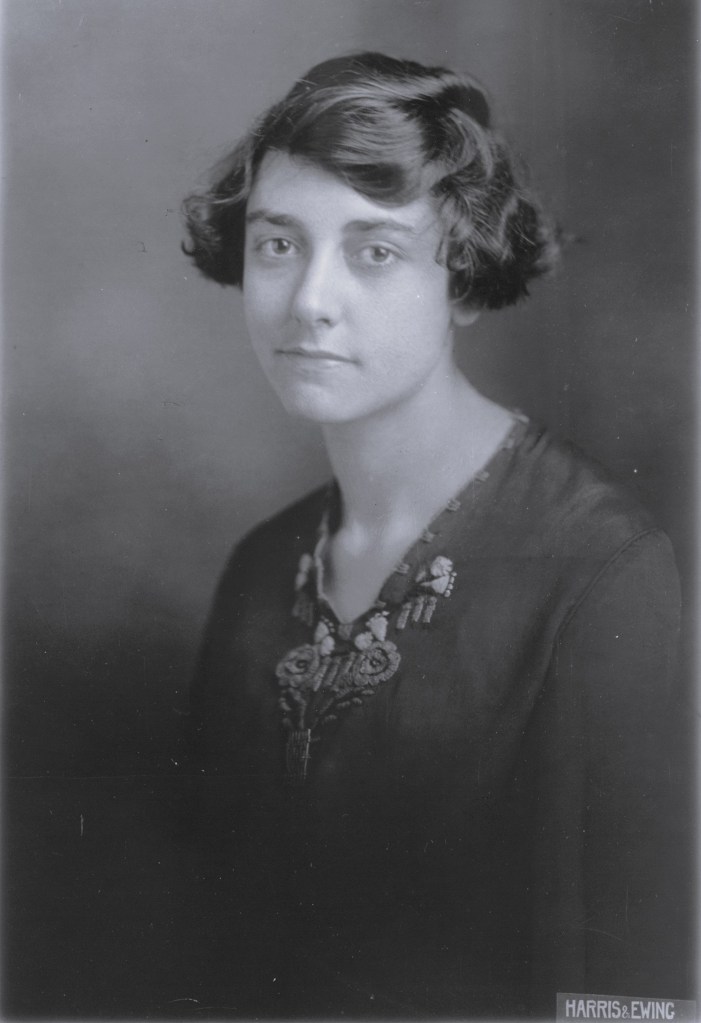
Hildegard ELIZABETH Kalb Green Handy
1896 – 1973
BA, Rice Institute [now University], 1916
Writing Classes, University of Chicago, 1917/1918
Staff, National Woman’s Party, 1918 – 1921
Secretary, CA Women for LaFollette for President, 1924
Reporter, American Committee for Fair Play in China, Peking [Beijing], 1925/26
Editor, Pacific Affairs, Hawaii, 1927 – 1933
Writer and Farmer, Virginia, 1936 – 1973
Exploring the life and letters of Elizabeth, we see history writ large. A modest, middle-class girl, she dreamed of being a writer. Instead, Elizabeth became a minor player in a series of major 20th century movements. Her writings provide a history lesson, as do the surrounding truths that she did not convey.
Elizabeth was a lovely person, easy to talk with and interested in the world around her. Her friendly exterior, however, hid a determined will. In 1918, she had a college degree, supportive parents and an adventurous spirit. With these she set off to do and see and act, beginning with picketing the Capitol with the National Woman’s Party.
After that was California, China, Hawaii and Virginia. And always: writing, writing, writing.
In addition to suffrage, she wrote about the struggles of Native Americans in California, the fight for a new country in 1920’s China…and about “Genethnics,” a way to study people that borders on eugenics.
While much of her writing was on behalf of organizations, Elizabeth also left behind unpublished manuscripts, journals and letters. These first-person accounts provide key insights into what she saw, heard and felt.
One limitation, however, is the audience factor. Letters were sent to her mother and book drafts went to publishers. Even her personal journals were read by her husband at times. The ‘audience’ shaped what she chose to share. When things were bad, during critical times in her life, she stopped writing altogether.
So our picture of her life has ‘smudged’ as well as blank areas. Fortunately, letters from diverse friends are also available, as well as other third-party accounts. They help build a more complete picture of her very full life.
We start with letters home to her mother, detailing life as she arrives in Washington DC to fight for suffrage. While she planned to volunteer for just a few weeks, a job offer from Alice Paul led to a much longer engagement. Her letters are a unique record of daily life in the hub of radical activity: the National Woman’s Party.


